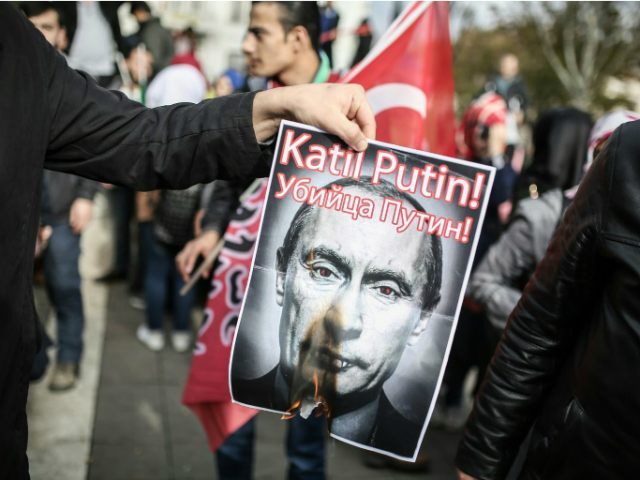According to Middle East expert and former Israeli government official, Turkey and Russia are have entered a new era of cold war. Israel, however, is likely to reap economic rewards from the broken ties between the two countries.
“Currently, the two countries are in a state of cold war, but they have no interest is passing over to a hot war,” said Professor Ze’ev Hanin, a political scientist at Bar Ilan University and former Chief Scientist at Israel’s Ministry of Absorption, in an interview with Israeli news website, Arutz 7.
In the first incident of its kind since the Cold War, NATO member Turkey downed a Russian fighter jet in its airspace last week. Russian President Vladimir Putin has maintained that at no time was the plane over Turkish territory, and has demanded an apology. Turkish Prime Minister Recep Tayyip Erdogan’s refusal to apologize means that Russia will impose economic sanctions against Turkey.
“The Turks wanted to show the Russians they cannot get in their way, so whether the Russian aircraft actually entered Turkish airspace is irrelevant,” Prof. Hanin said. “These are two states that need to flex their muscles, and it doesn’t really matter who started it first.”
Prof. Hanin said that the conflict between the two countries was to be expected.
“The attack on the Russian plane was a problem many were expecting,” Prof. Hanin asserted. “These are two countries that both want to become superpowers, who, until now, had good relations, but now, when it comes to the struggle for the future of Syria, there are conflicting interests. The Russians support [Syrian President] Assad, and the Turks supports the rebels.”
Prof. Hanin went on to claim Israel stands to gain from Russian sanctions on Turkey. “Russia has already taken several measures, including economic ones,” he noted. “Russian tourism to Turkey stood at 4 million a year until this point. Tourists from Russia may start to arrive more at hotels in Eilat and Tel Aviv. Even the ban on agricultural products from Turkey can affect us positively.”

COMMENTS
Please let us know if you're having issues with commenting.